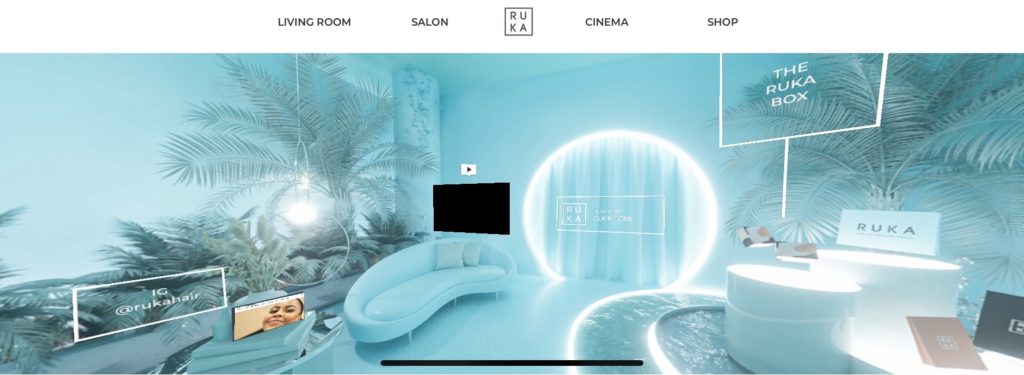Beauty | February 6th, 2021
Artificial Intelligence is the Beauty Industry’s Latest Transformation
By: Nadia Wilson

Technology is ever-changing in the beauty and fashion industries. During the peak of COVID-19, we witnessed the emergence of 3D runways from Anifa Mvuemba and now Tendai Moyo, CEO and founder of RUKA Hair, shifts into 3D integration to enhance the digital shopping experience.
RUKA hair mimics real curl patterns, meaning less time spent trying to manipulate extensions not truly designed to match in the first place. Moyo is currently reshaping the beauty industry by launching an innovative website that gives a virtual experience where shoppers can give themselves a 360 self-tour of the entire site.
“Our virtual experience was pushed by the fact that hair is something people ideally want to touch and feel before they buy it. We wanted RUKA customers to be able to feel the same level of comfort over their purchase but using a different sense,” Moyo said. “We played on the use of sound and visuals to create a completely submerged experience of the Black girl hair journey and I think people were excited by that.”
The Curls & Coils Experience is open all week! We have 4 rooms for you to explore, leading up to our store opening on Thursday 28th Jan
See it for yourself: https://t.co/kS086lE4hP #rukalaunch pic.twitter.com/Qxgw21w1rr
— rukahair (@rukahair) January 26, 2021
RUKA Hair is digital-first and is not impacted by a lack of in-person interaction. The website includes four rooms where customers can virtually tour and learn more about the brand. The living room features vital information about their hair care products including the ingredients. In the salon, customers can view the hair extensions along with an engaging conversation about hair. The cinema room incorporates a video discussing the history of black hair, an empowering monologue about black women and photos of trailblazers on the walls. The last room is the shop room where you can choose whether you want to shop or learn about the RUKA box that the extensions come in.
Brands find virtual tours one of the most effective ways to interact with customers and clients online. Moyo anticipated that more brands will focus on bringing the experience online by finding ways to build intimacy with consumers in ways other than the traditional customer experience.
In a study conducted by Google, 67% of respondents wanted more businesses to include virtual tours in their marketing material, meaning that audiences value the interaction and personalized experience virtual 360 tours provide.
According to Lisa Avvocato, head of marketing for AI-powered analytics provider Oden Technologies, “The consumer today values efficiency and excitement, and to meet this, new levels of product personalization have been conceived using artificial intelligence and machine learning applications.”
Beauty and fashion brands use artificial intelligence and augmented reality so that customers can virtually “try on” items before purchasing them. From automating business processes to predicting what a customer will buy, it is a changing marketplace.
“Our launch, alongside Hanifa’s virtual fashion show and Rihanna’s FENTY digital party, were challengers to the traditional launches. It would be crazy for other brands not to follow and I hope we continue to lead the path to innovation,” Moyo said.
Customer engagement innovation is ideal for a creative new brand. As artificial intelligence becomes infused in everyday life, it is expected that more brands will join the companies using digital platforms to promote and launch their products.






